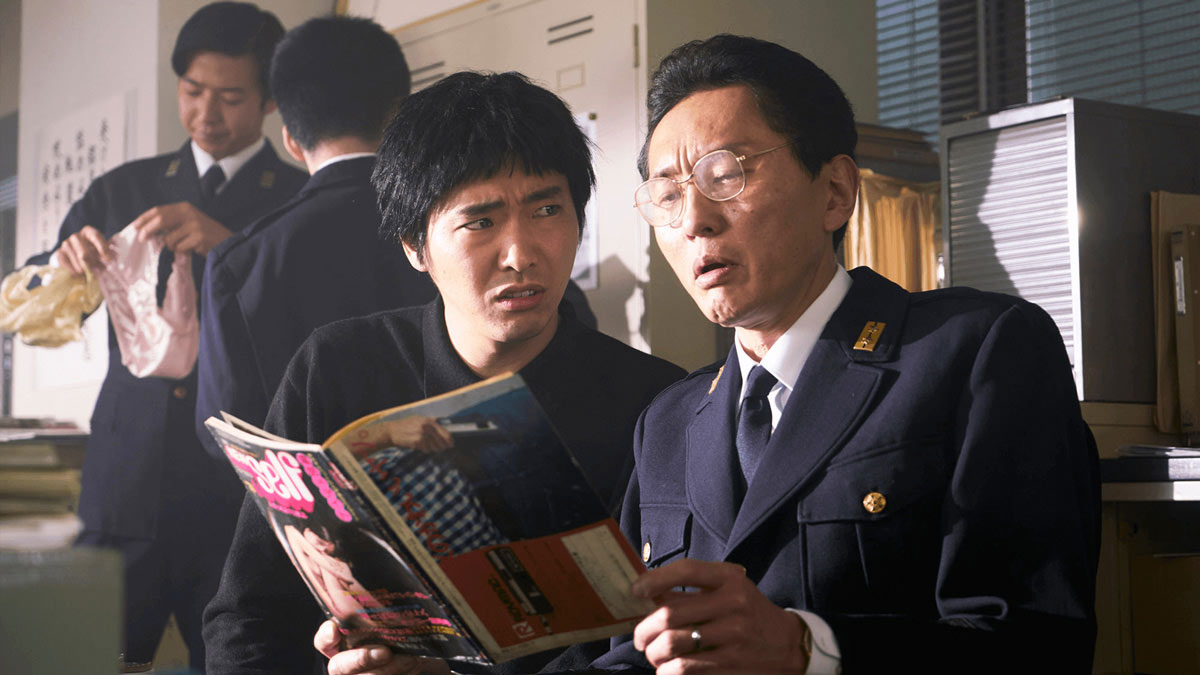
©2018 “Dynamite Graffiti” Production Committee
For those who want to know more about the backbone of the ``Dynamite Graffiti'' about the life of a legendary charismatic magazine editor!
2018.03.20
The deep world of the masterpiece “Suicide” that can be called “the original work behind the scenes”
This book, `` Suicide ,'' won the 30th (2014) Kodansha Essay Award, and is part of a popular blog series in which he writes about various thoughts, considerations, and his own philosophy on the theme of ``suicide,'' based on his own life experiences. It will be made into a book. In some ways, this book can be said to be a remake of his own book, ``The Dynamite Graffiti,'' which was written about 30 years ago.
What is written in detail is ``Mr. F,'' who was in a mistress relationship with Suei. In the movie, she is called Fueko and is played by Toko Miura.
In the 1982 original book, `` Dynamite Graffiti ,'' Mr. F only appears briefly in a chapter called ``Akira Suei's Otsukare Diary.'' ``I went to see Fellini's `` The City of Women'' with Schinacht'', ``In the middle of the night, I suddenly received a phone call saying, ``I'm going to die soon, so please come right away'', so I hurriedly got into a taxi.'' I'm sure this is a reference to her.I received a letter from the hospital saying, ``I don't want this.I believe we'll see each other again.''
On the other hand, in ``Suicide'', the chapter ``Sleepless Night'' begins with the encounter with Mr. F, and the horrific story of her affair, which progresses to rotten boredom, and eventually her mental abnormality, is clearly told. There is.
There is a memorable scene in the movie where, when Suei and Fueko are having a secret date by the lake, the Mamas & Papas' 1965 masterpiece " California Dreams " comes out of nowhere. The actual episode that happened is also recorded here.

“Dynamite Graffiti” ©2018 “Dynamite Graffiti” Production Committee
Suei's writing is generally very humorous, but the writing in ``Sleepless Night'' is simply dark and heavy. It's as if there's no room for laughter, and it's both sublime and depressing throughout. The cover of ``Suicide'' is an imitation of Munch's ``The Scream,'' but this book certainly brings to the fore the melancholy of life compared to 1982's ``The Dynamite Graffiti.'' In the previous book, the mother's dynamite suicide was vividly depicted as if it were a black joke, but this book deals with it more directly.
In that case, one could say that director Tominaga's film is based on ``The Dynamite Graffiti'' and ``Suicide'' on the other side. Particularly in the second half of the film, I get the impression that the introspective tone of ``Suicide'' (or, in Suei's words, a ``depressed'' feeling) overflows the entire film.
By the way, if you look at the other references listed, you will find Suei's works ` `Tokyo Dynamite Kid' ' (1985/Kadokawa Bunko) and `` Tokyo Decameron: Customs Ijin Travels' ' (1987). /Kadokawa Bunko). And Shinbo Minami's masterpiece `` People in the Monkey Industry '' (first published in 1981/1994 in Chikuma Bunko), which vividly captures the erotic industry from the angle of his own experiences. Suei appears as "S-kun". Furthermore, `` Love Hotel De Rakusha '' (1981/Byakuya Shobo) records the interaction between Nobuyoshi Araki and a nude model in the form of a conversation. This book was designed by Suei.
Certainly, if you read this much, you will be able to learn the backbone of the movie ``The Dynamite Graffiti.'' Although most of these are rare books that can only be obtained second-hand, we would like you to enjoy the charm of the movie to the fullest, including as much subtext as possible.
Text: Naoto Mori
Film critic, writer. Born in Wakayama in 1971. He is the author of ``Cinema Garage: Children in the Ruins'' (Film Art Publishing), and edited ``Movies of the Zero Years+'' (Kawade Shobo Shinsha), among others. He regularly writes for magazines such as Weekly Bunshun, Asahi Shimbun, TV Bros., Men's Nonno, Kinema Junpo, Eiga Hiho, and Cinema Today.

"A Dynamite Graffiti"
Director/Screenplay: Masayoshi Tominaga
Blu-ray & DVD now on sale
Publisher/distributor: Bandai Namco Arts
©2018 “Dynamite Graffiti” Production Committee

